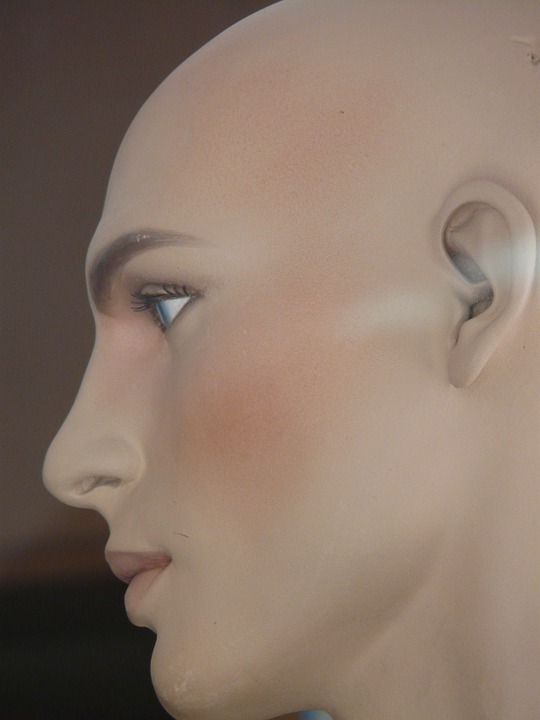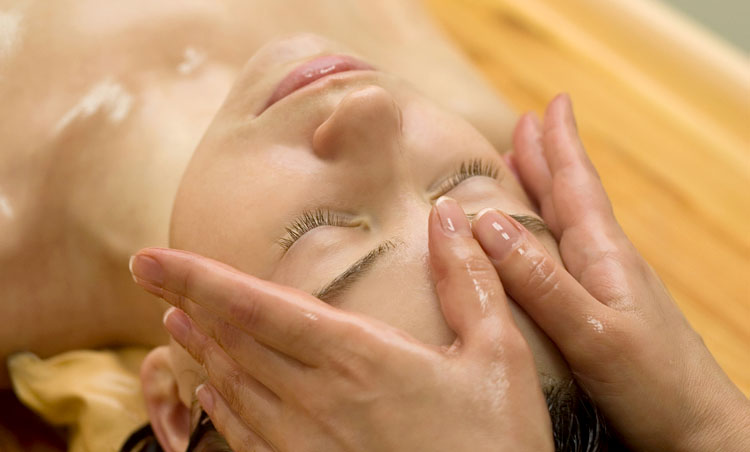It can be hard on your self-image to not have any hair. There are millions of people in the United States dealing with hair loss. It is very common for natural hair loss to occur after age 40, but some people lose their hair very early on. It could be attributed to medical treatments, health conditions, or even poor diet. Hair loss occurs when the hair follicles lose their ability to produce keratin, a substance that contributes to hair growth. If you do not have enough keratin, you will not be able to regrow hair. This article will take you through the basics of hair and why it falls out.

Will My Hair Grow Back?
Whether your hair will grow back or not depends on the cause of the hair loss. There are two different type of hair loss: non-permanent hair loss that does grow back, and permanent hair loss.
Non-Permanent Hair Loss
- Stress: Intense stress can cause your hair to fall out. Understand that it has to be a severe type of stress over a long period of time, not just a few days. Your body under stress can actually cause your hair follicles to go dormant for a few months, and then a sudden hair loss. If you learn to control stress, your hair will begin to grow back.
- Alopecia Areata: Alopecia Areata is an autoimmune disorder where the body fights itself off thinking your own tissues are a foreign invader. This autoimmune disorder specifically attacks your hair follicles and makes your hair fall out, and can flare during stressful times in your life. If you have this disorder you may wonder, will my hair grow back? In some cases, the hair doesn't grow back, but most do have regrowth with treatment.
- Pregnancy: Most women enjoy thick and illustrious hair during pregnancy. Your hair cycle actually stops during pregnancy. In some women, it can be the opposite and may not be a positive sign. Most often it is a sign of nutritional deficiency. Getting your nutritional status optimized will help your hair grow back.
- Thyroid disease: Low thyroid hormone can make your hair fall out, and high levels of thyroid hormone can cause thinning hair. Some thyroid medications may cause hair loss in the beginning. Your hair will show signs of improvement as the hormone levels are stabilized.
- Fungal infection: Fungal growth on the scalp can cause you to lose patches of your hair. This is because the fungus can infect the hair follicles and cause them to shed. This type of hair loss is temporary and will grow back after it is treated.
Permanent Hair Loss
- Genetics: Will my hair grow back if my parents have early baldness? This is the misunderstood part, if your mother's side of the family experienced baldness then you will be at risk. Your hair genes are passed down from your mother’s side. You can tell by your hairline if you have a receding hairline or a widow's peak. This type of hair loss is very hard to restore and does not grow back.
- Scarring Alopecia: In this type of baldness, the hair follicles form scar tissue underneath the scalp. You will notice your head beginning to turn shiny in the spots where hair is lost. This completely destroys the hair follicles' ability to regenerate hair growth and is permanent.
What Can Be Done to Help Your Hair Grow Back Naturally?
If you are looking for a natural treatment to help hair regrowth, here are some age-old treatments you can try:
1. Warm Oil Massage
 Giving your scalp a nice hot oil massage increases blood flow to the area, which may in turn help hair regrowth. The oil helps to nourish your scalp and give it moisture. Jojoba, coconut and olive oil are great choices.
Giving your scalp a nice hot oil massage increases blood flow to the area, which may in turn help hair regrowth. The oil helps to nourish your scalp and give it moisture. Jojoba, coconut and olive oil are great choices.
How to Apply: Gently warm the oil first. Then let it cool a bit, and take a small amount of the lukewarm oil in the palm of your hand and get it to your fingertips. Massage the oil into your scalp in a circular motion while applying pressure. Do this for about five minutes each day.
2. Aloe Vera Gel
 Aloe vera has long been used to heal the skin. Aloe vera is said to get into the pores and unclog any hair follicles allowing circulation and healing.
Aloe vera has long been used to heal the skin. Aloe vera is said to get into the pores and unclog any hair follicles allowing circulation and healing.
How to Apply: Put a small amount of aloe vera gel on your fingertips and massage into your head. It may help hair regrowth, but can also help slow or prevent hair loss.
3. Rosemary Oil
 This powerful herb is full of antioxidants, silica, and sulfur. These biochemicals can help increase your hair growth and prevent future hair loss. It does this by opening up your follicles and getting blood flow back to them. It can make your roots stronger and your hair will appear healthy and full. It is also a good dandruff remedy.
This powerful herb is full of antioxidants, silica, and sulfur. These biochemicals can help increase your hair growth and prevent future hair loss. It does this by opening up your follicles and getting blood flow back to them. It can make your roots stronger and your hair will appear healthy and full. It is also a good dandruff remedy.
How to Apply: Take two drops of rosemary oil and mix into coconut oil or olive oil. Massage in well and leave for 15-20 minutes. Shampoo and rinse well.
Medical Treatments Available to Help
There are a few medical treatments available for hair loss. If you ask your doctor, “will my hair grow back” they may have you try one of two medications for hair growth:
1. Minoxidil
This medication is applied to the scalp to help hair regrowth. It may also prevent hair loss. Both men and women can use this medication. You need to use it continuously as it will stop working once you stop the medication.
Side-effects: Cannot be used during pregnancy, irritation to the skin, fast heart rate.
2. Finasteride
This is a "male" use only medication for male pattern baldness. You begin taking it as soon as you notice your hair falling out. There is evidence of some new growth, but the medication only works while you are taking it.
Side-effects: Cannot be used by women who are pregnant or planning to get pregnant, women who are pregnant should never touch the pills. It may increase the risk of prostate cancer, lower sex drive, and inability to maintain erection.
3. Transplants
There are procedures where hair follicles can be transplanted into the scalp area where hair is missing. The follicles may continue to produce hair in the new areas. You will need to also use one of the above medications after surgery.
Side-effects: You may experience post-operative complications like infection. There is also a risk of scarring. These procedures are very costly and don't always work.
4. Wigs
If the answer to your question, “will my hair grow back,” isn't one you wanted to hear, there are options if medications don't work. Many people choose to have wigs designed. There are natural hair wigs and artificial wigs that are very trendy and nice looking.
